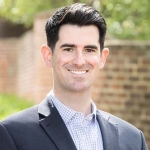Learn more about why you should apply to teach a University Seminar, the available funding, and how to apply.

University Seminars - Fall 2023 Listing
Fall 2023 Courses
Please refer to the USEM course listings within SIS for course meeting times.
- Death, Dying and Bereavement
Richard Steeves
You should take this University Seminar if you want to think and talk about dying, death and bereavement.
Although western culture and American culture in particular has a reputation for being death denying, we do in fact confront images of and talk about death on almost a daily basis. This course will not be a study about death and dying in the news and popular media, rather it will about those who have thought about our mortality seriously and extensively.
- Who Cares? Exploring the Science of Compassion
Amy Boitnott
You should take this University Seminar if you want to understand the giving, receiving and observation of compassion in our community and beyond.
This course will explore the science and emotion of compassion. Compassion is something we exhibit to ease the pain of someone’s suffering. It is also a science composed of measurable outcomes and data that can be tested, proven and manipulated. We will discover how to measure compassion and explore the possibility that compassion is an inborn trait and question if all humans have the ability to give and receive compassion.
- Designing a Carbon Neutral Future
Ethan Heil
You should take this University Seminar if you want to solve climate change.
This course will introduce the concept, rationale, and mechanisms to decarbonize our society. Students will become familiar with major sectors contributing to climate change and analyze pathways for decarbonization. Students will work in multidisciplinary teams with a University partner to develop a carbon neutral plan. Weekly guest speakers will be invited to provide expert insight and act as a resource for the group project.
- Journeys through Hell
Dariusz Tolczyk
You should take this University Seminar if you would like to step outside your cultural comfort zone and place yourself tentatively in the shoes of people who experienced some of history's most profound assaults against humanity and shared this experience with us in fascinating texts.
We will explore and discuss survivors' accounts of extreme historic evil, such as the Holocaust, the Soviet Gulag, the mind reform camps in Communist China, the Cambodian killing fields and others. We will ask: What motivates human beings under extreme conditions? Are human beings good by nature? How does mass-scale evil originate in history? Does being exposed to suffering and oppression make us better and more enlightened human beings?
- Australia
Mark Thomas
You should take this University Seminar if you are interested in learning about a society that on the surface looks quite familiar to American audiences, but is truly distinctive, in terms of its history, its politics, its culture.
Australia is a paradox. A penal colony that became the richest country in the world within a century; independent of Britain since 1901, yet the Queen remains the head of state; long among the most urbanized of global societies, with a cultural identity that is largely shaped by rural idealism. We will use novels and diaries, movies and artwork, to explore these paradoxes: to understand the history, culture and society of the land ‘down under'.
- Inside the COVID-19 Response
Rebecca Schmidt
You should take this course if you want to explore the creation, implementation, and impact of policies during a public health emergency — and the implications for future pandemics.
You will hear first-hand from community leaders in local government, non-profit organizations, schools, and coalitions about COVID-19 policies and their impacts on food, housing, public health, health care, education and other services. This course will expose you to the infrastructure of public services and provide you with the context to consider and debate what we might keep, discard and advocate for to prepare for the next pandemic. There will be a strong focus on the public health system and its future.
Learn more about why you should take a University Seminar and what you need to know before enrolling.

P.O. Box 400308
Booker House
Charlottesville, VA 22904-4308
 Provost
Provost